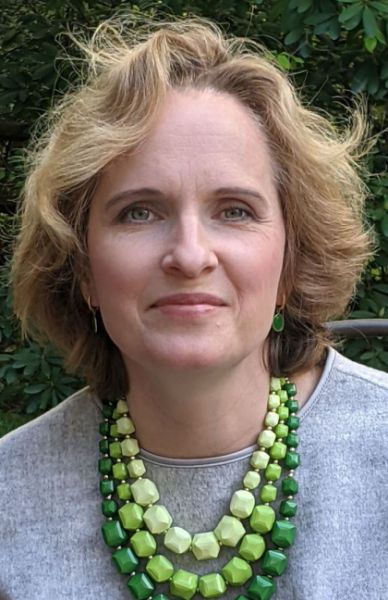Take Care of Yourself
Take Care of Yourself
Irene Lopatovska, PhD and Leanne Bowler, PhD, Pratt Institute
Heidi Julien, PhD, University at Buffalo
Soo Young Rieh, PhD, University of Texas at Austin
Are you an academic faculty member who feels exhausted by balancing your research, teaching and service responsibilities? You’re not alone! Studies show an increase in pandemic and post-pandemic burnout caused by transition to new teaching or research modes, increased emotional labor required to support students, colleagues and families, uncertain work conditions, unbalanced research, teaching and service expectations, and other factors (Dali et al., 2023; Douglas et al., 2022; Harris, et al., 2024; McClure & Fryar, 2022). During the recent iConference’24, we organized a panel to share faculty’s post-pandemic experiences and identify strategies for improving faculty mental health and well-being.
—Are you an academic faculty member who feels exhausted by balancing your research, teaching and service responsibilities?—
iSchool faculty from several countries joined the discussion and confirmed experiences of continuous fatigue associated with lack of material and emotional support from administration, increase in service responsibilities, and significant emotional labor required to support students and prioritize their mental health. Participants recognized that their personal trauma of living through COVID and ongoing health struggles are largely unacknowledged by their institutions and need to be addressed.
While sharing our challenges with peers was, in many ways, therapeutic, the overall tone of the panel was constructive, with many strategies for coping with stress and fatigue shared among participants. Some of these strategies might be useful to our readers, for example:
- Learn to navigate the constant stream of research and service opportunities, learn to say “no” to projects, tasks, and committees that don’t serve your professional and personal priorities. Learn what’s valued in your institution for promotion and rank advancement, and focus on projects that help you grow in these areas. For example, before joining an institutional committee, seek information about expected workload and inside politics, and learn to decline invitations if you don’t have the bandwidth, political savviness (or an appropriate rank, i.e. non-tenure faculty) to be a productive and effective contributor.
- Find a mentor (senior faculty or administrator) who will help you select the right opportunities and advise on the proper balance of conflicting job demands.
- Join peer-support groups, like the iSchool Women Coalition (https://www.ischools.org/womens-coalition)
- Introduce firm deadlines or policies for professional conduct for students to mitigate lateness in attendance and assignment submissions.
- Use personality and other tests to better understand yourself, your emotional triggers and best coping strategies; learn to recognize what upsets you and identify copying techniques that work for you.
 Panel participants discussed a number of resources that are not currently available at their institutions, but would improve their mental health:
Panel participants discussed a number of resources that are not currently available at their institutions, but would improve their mental health:
- Mental health resources for faculty (not just students), including professional counseling/therapy services and wellness-oriented classes offered at locations and times when the faculty can take them. Some participants mentioned yoga and meditation classes available in their institutions, but complained that they couldn’t take advantage of them due to scheduling conflicts.
- Material resources provided to faculty to support remote learning and home office needs. Several participants reported on increased personal financial burdens of supporting their teaching needs and associated feelings of frustration.
- Mentorship from peers and administrators. It is not always reasonable to expect grass root peer mentorship that adds to the already heavy workload of senior faculty. Peer mentorship should be woven into the academic structure where required time commitment is acknowledged and rewarded, and administrative mentorship is required. Participants reported that some institutions are experimenting with making mentorship activities required for promotion or tenure.
- Better communication and collaboration with institutional offices that handle student accommodations. Faculty fatigue is often caused by constant prioritization of student needs at the expense of faculty well-being (i.e. late assignment submissions, class absences/lateness) or faculty inability to understand and properly address student mental health needs. More productive relationships with student special accommodation services could help faculty to better understand how to support students while minimizing negative effects on the educational process and their own mental health.
- Flexible approaches in traditionally time-constrained processes, for example, pausing of the tenure clock or grant funding for faculty who are affected by health challenges. Flexibility in recalibration of responsibilities for faculty as they advance in status, rank and experience. For example, senior faculty who carry heavier service and mentorship loads should be allowed to teach fewer courses.
The list of recommendations generated during the panel is by no means exhaustive. The panel provided a platform for faculty to speak freely and be heard, and support each other through their shared experiences and a sense of community. We want to continue the conversation and seek your input on the strategies you employ to deal with work-related fatigue and stressors. Perhaps your inputs will underpin a standing editorial column for faculty mental health resources in Information Matters. Reach out to us at ilopatov@pratt.edu
Cite this article in APA as: Lopatovska, I., Bowler, L., Julien, H., & Rieh, S. Y. Take care of yourself. (2024, June 25). Information Matters, Vol. 4, Issue 6. https://informationmatters.org/2024/06/take-care-of-yourself/
Authors
-

I am a Professor at the Pratt Institute School of Information. I worked as an information professional in government and corporate organizations, and earned my Ph.D. in Information Science (with minor in Decision Making) at Rutgers School of Communication and Information. My interests evolve around humanistic research and understanding of relationships between humans, information and technology.
View all posts -
Leanne Bowler, Professor, Pratt Institute, New York City, USA. Dr. Bowler’s research and teaching focuses on young peoples’ interactions with data and information, youth technology practices, STEM learning, and how family, teachers, and out-of-school organizations, such as libraries and museums, support young peoples’ competencies in socio-technical environments.
View all posts -
Heidi Julien, PhD, is a Professor in the Department of Information Science at the University at Buffalo.
View all posts -
Soo Young Rieh is Professor and Senior Associate Dean for Academic Affairs in the School of Information at the University of Texas at Austin. Her research interests encompass information behavior, search as learning, creativity support in searching, and information literacy.
View all posts





